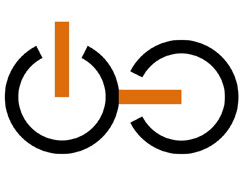Frontiers ARG-NLP
July 21-25
University Residential Center
Bertinoro (Forlì-Cesena), Italy
University Residential Center
Bertinoro (Forlì-Cesena), Italy
Large amounts of text are added to the Web daily from social media, web-based commerce, scientific papers, eGovernment consultations, etc. Such texts are used to make decisions in the sense that people read the texts, carry out some informal analysis, and then (in the best case) make a decision; for example, a consumer might read the comments on an Amazon website about a camera before deciding what camera to buy. The problem is that the information is distributed, unstructured, and not cumulative. In addition, the argument structure - justifications for a claim and criticisms - might be implicit or explicit within some document, but harder to discern across documents. The sheer volume of information overwhelms users. Given all these problems, reasoning about arguments on the web is currently infeasible.
A solution to these problems would be to develop tools to aggregate, synthesize, structure, summarize, and reason about arguments in texts. Such tools would enable users to search for particular topics and their justifications, trace through the argument (justifications for justifications and so on), as well as to systematically and formally reason about the graph of arguments. By doing so, a user would have a better, more systematic basis for making a decision. However, deep, manual analysis of texts is time-consuming, knowledge intensive, and thus unscalable. To acquire, generate, and transmit the arguments, we need scalable machine-based or machine-supported approaches to extract arguments. The application of tools to mine arguments would be very broad and deep given the variety of contexts where arguments appear and the purposes they are put to.
On the one hand, text analysis is a promising approach to identify and extract arguments from text, receiving attention from the natural language processing community. For example, there are approaches on argumentation mining of legal documents, on-line debates, product reviews, newspaper articles, court cases, scientific articles, and other areas. On the other hand, computational models of argumentation have made substantial progress in providing abstract, formal models to represent and reason over complex argumentation graphs. The literature covers alternative models, a range of semantics, complexity, and formal dialogues. Yet, there needs to be progress not only within each domain, but in bridging between textual and abstract representations of argument so as to enable reasoning from source text.
To make progress and realize automated argumentation, a range of interdisciplinary approaches, skills, and collaborations are required, covering natural language processing technology, linguistic theories of syntax, semantics, pragmatics and discourse, domain knowledge such as law and science, computer science techniques in artificial intelligence, argumentation theory, and computational models of argumentation.
